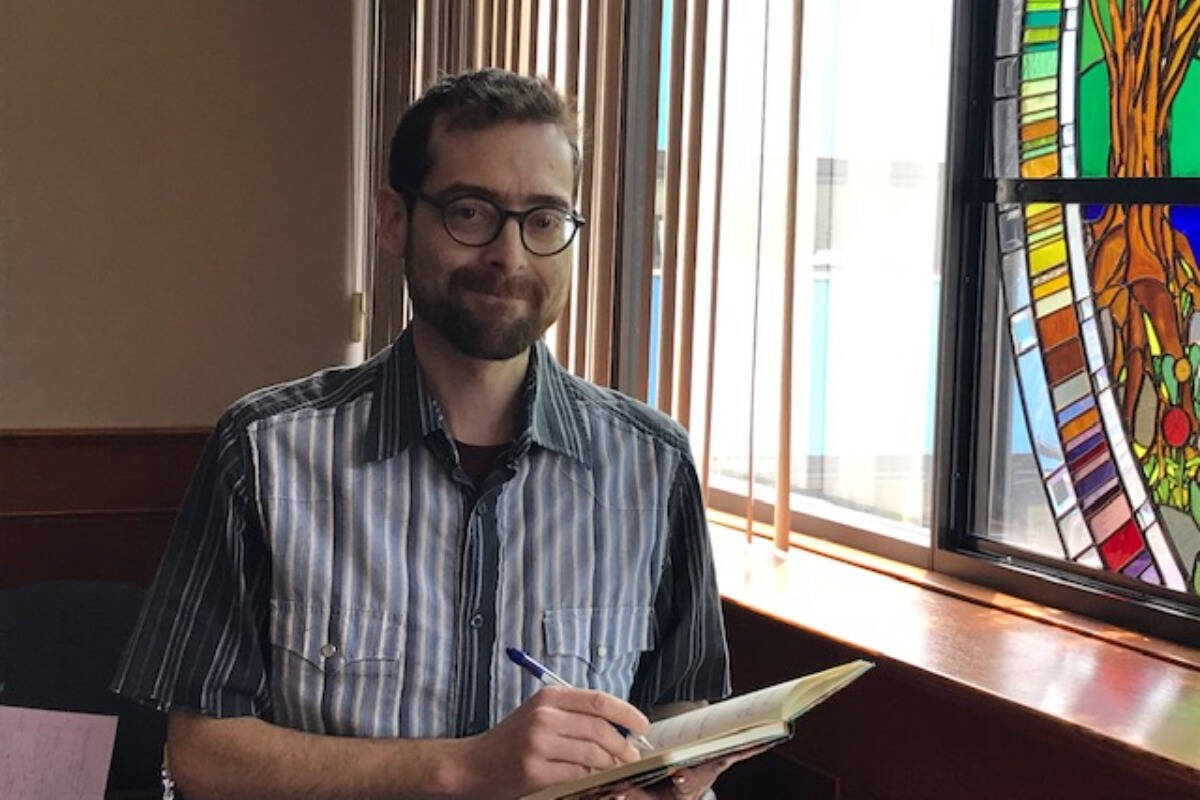Kootenay native Aaron Banfield is turning the old chapel in the Kootenay Boundary Regional Hospital into a “sacred space” where patients can focus on emotional wellness and find support from their peers.
The project is deeply personal, as Banfield is living with late-stage colorectal cancer.
When he moved back to Rossland three years ago, he developed a strange pain in his abdomen — his diagnosis started a long, emotional journey of treatment and personal growth.
“It launched a whole side of my new chapter in life that I was not expecting, and it has been pretty full.”
After a year of remission, his cancer came back and grew quickly. “I don’t expect to see the end of the year, and maybe not even the end of the season,” he said.
An acupuncturist by training and a longtime community organizer, he was thrilled when a nurse mentioned an unused space in the hospital.
“I was just sitting there and the nurse came in and said, ‘Hey, you like to meditate and stuff, right? Well, there’s this old chapel, and it hasn’t been used for much of anything for the past few years,’” he said.
The space needs some tender loving care, but according to him the feel of the room is “immaculate.” A gorgeous, non-denominational stain glass window provides natural light, while several side rooms provide areas where people can practice their respective religions.
Banfield spent time in a similar room in the Kelowna hospital, and it was beneficial for his mental, emotional and spiritual well-being.
“Anyone that has spent time in a hospital, knows you get into a limbo-state. You forget what day it is, who you are and what life is about,” he said.
Banfield used this experience to create his vision of a “dedicated” and “active” space in the former chapel. Words he chose very carefully.
Dedicated in that it’s designed only to support connectedness and mindfulness. “The space is totally neutral, everybody is welcome,” he said.
READ MORE: Trail couple makes especially meaningful donation to KBRH
READ MORE: Fundraiser for Kootenay Boundary cancer patients carries on
Active in that there are activities that promote psychological, emotional and spiritual well-being. Yoga, meditation, support groups, prayer spaces and a place for medical assistance in dying to occur are all part of his vision.
The project goes beyond the physical needs of the patients and focuses on the internal, something he thinks is often overlooked in end-of-life care.
“I really hope the basic philosophy of it emanates out and brings more care and attentiveness to the subtle aspects of the hospital experience,” he said.
“Anything to get people away from the TV into a facilitated connection.”
Banfield is working with an interior designer to put the space together. Once the physical space is designed, he plans to engage his community to see what types of services to offer.
Although the space is far from finished, he uses the room to practice his yoga, and he suspects others have started to do the same. “Often when I come in the chairs have been moved around, so I know other people are doing their things there too.”
For Banfield, the experience has been meaningful and the support he received is telling of a much needed addition to the hospital.
“Having a space that has facilitated discussion and has activities designed for people to get in touch with where their spirits are at is great,” he said.
Although he is thankfully not in much pain, he lives with significant daily medical intervention. In his last months, he is making sure to appreciate the family and friends by his side — the “less tangibles” that enrich his life.
“There’s been a lot of growth, a lot of healing, a lot of finding things within ourselves as my community and I have really processed that I am definitely going to be leaving,” he said.
Banfield is hoping for donations to fund and furnish the space.
He is looking for light and sanitizeable furniture, especially chairs, a love seat and a wooden bench. They are also looking for lighting, plants and decorative holders, a projector and roll-up screen, a fountain, yoga materials, art (especially 24” x 36” nature scenes), large crystals or stonework and a cabinet for storing cultural and religious objects.
To donate items, call the foundation at 250.364.3424 and be directed.
To donate cash, visit their website and in the section marked “I Wish to Support,” select “Other” and write Sacred Space.
Stories about KBRH here: #KootenayBoundaryRegionalHospital
newsroom@trailtimes.ca
Like us on Facebook and follow us on Twitter
CancerCity of TrailHealthcareKootenay Boundary Regional Hospital

